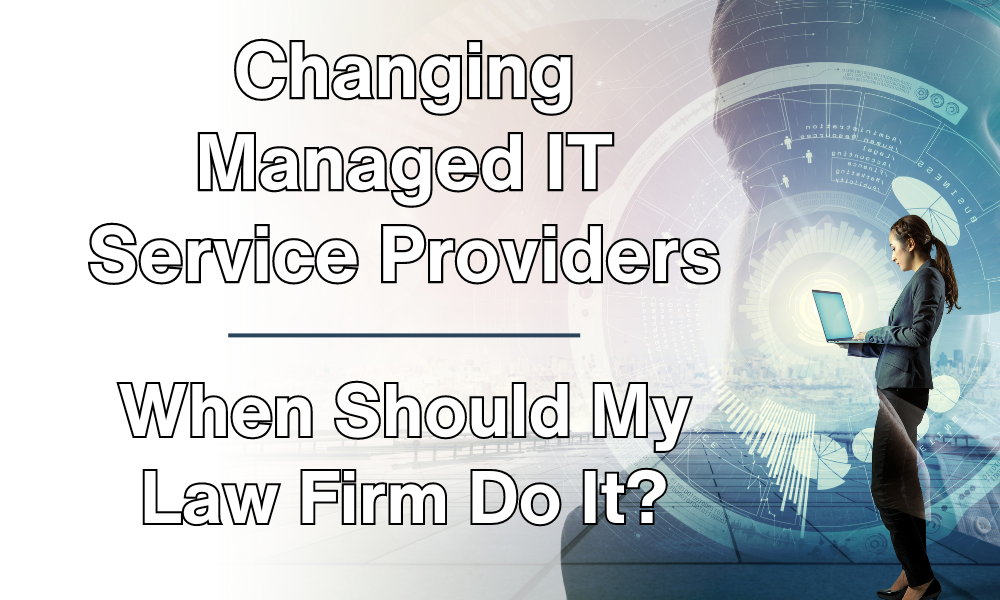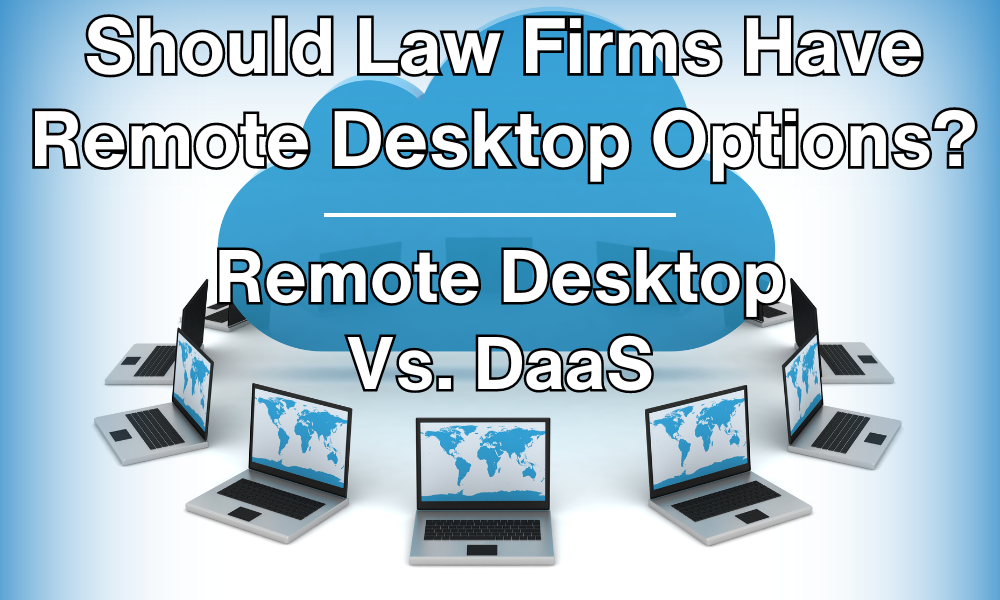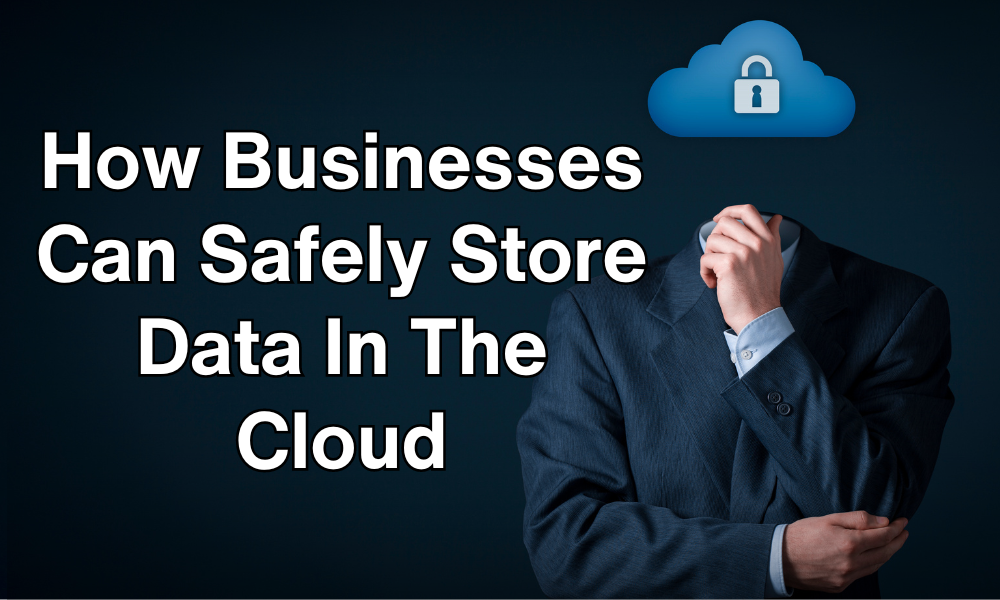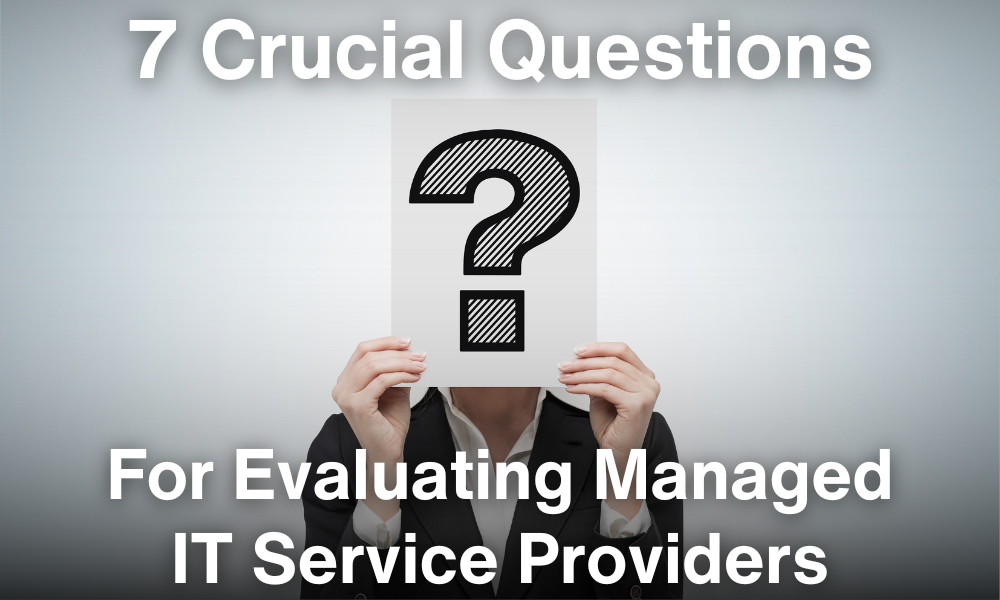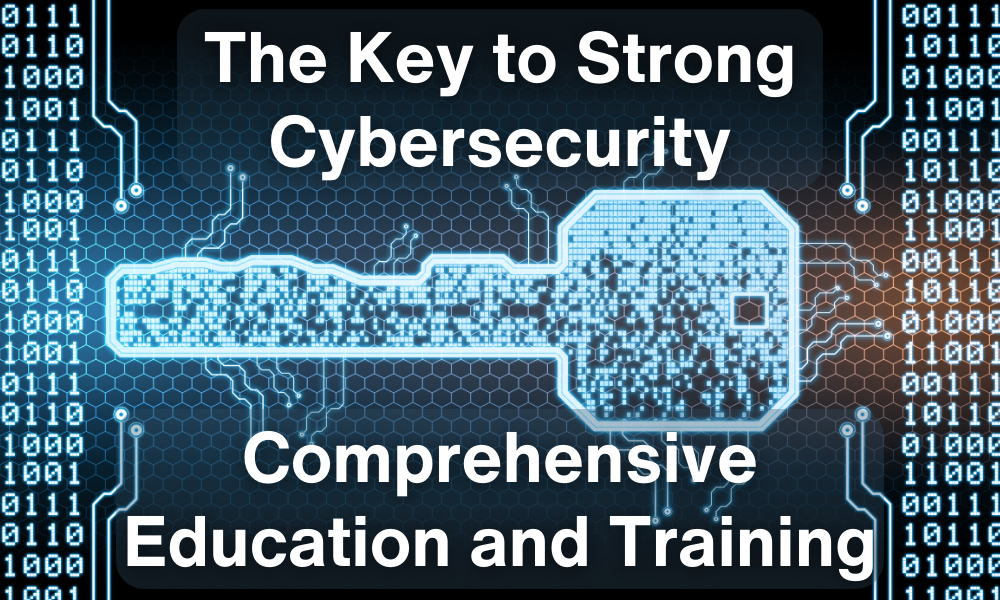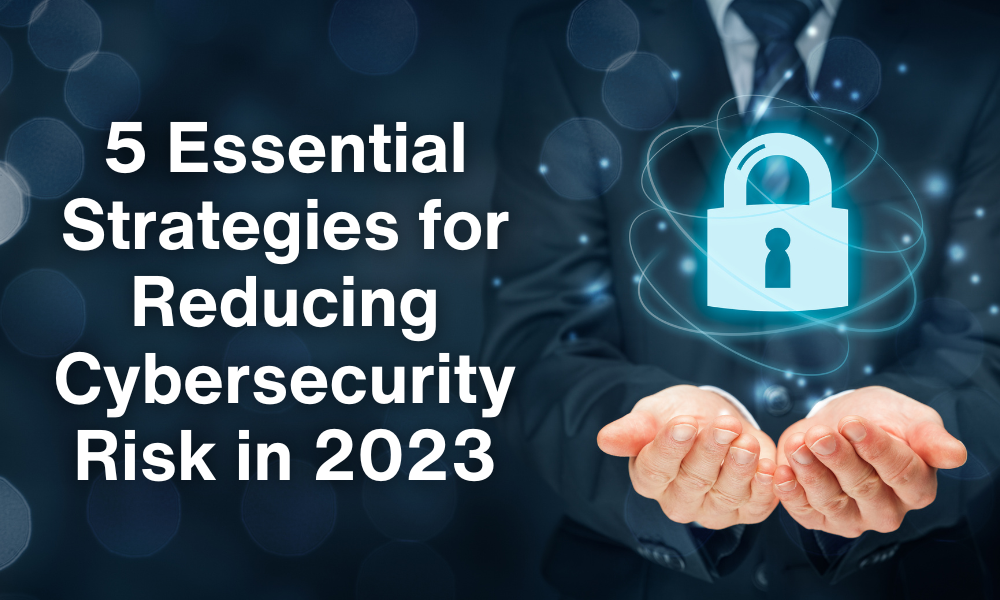Technology is integral to your law firm’s successful operations. An efficient, secure, accessible, and well-designed IT system will support your ability to provide outstanding client service and distinguish yourself in an increasingly competitive marketplace. As aw firms evolve, their managed IT service provider must be able to provide solutions that support their dynamic business objectives. Here are some signs that it may be time to change your managed IT service provider.




